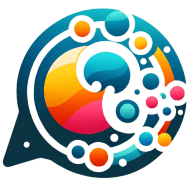9 Technology Tools that Strengthen Customer Relationships
Discover how 9 Technology Tools are revolutionizing customer relationships, featuring expert insights that unveil the power of effective CRM systems and data-driven strategies. This article explores cutting-edge tools and practices, including AI and personalized IT support, that are setting new standards for customer engagement and trust. Learn from industry leaders about the transformations driving proactive client relations and streamlined communication in today's digital landscape.
- CRM Systems Enhance Customer Engagement
- Personalized IT Support Through Data Insights
- HubSpot CRM Drives Proactive Client Relationships
- Centralized Data Improves Customer Interaction Quality
- AI-Powered CRM Boosts Client Trust
- Automated CRM Streamlines Customer Communication
- AI Chatbot Reduces Customer Service Workload
- Job Management Software Elevates Landscaping Service
- SaaS Evolves: Empowering Digital Transformation
CRM Systems Enhance Customer Engagement
The most helpful technology tool I've used to improve customer relationships is a CRM system with automated follow-ups and data tracking. Having a central place to manage interactions, track purchase history, and set reminders for personalized outreach has completely transformed how we engage with customers.
One of the biggest differences has been improving response time and personalization. With automation, we can send timely follow-ups, offer relevant recommendations, and check in at just the right moment. Instead of generic mass emails, customers receive messages tailored to their needs, making them feel valued rather than just another sale.
Another major impact has been tracking engagement patterns. Seeing which customers open emails, interact with content, or abandon carts allows us to adjust our approach. This has led to stronger retention rates and a more loyal customer base that trusts us to meet their needs. The key takeaway? Technology should enhance relationships, not replace them--when used right, it makes every interaction more meaningful.

Personalized IT Support Through Data Insights
A Customer Relationship Management (CRM) system has been the most impactful tool in strengthening our customer relationships at Tech Advisors. Before implementing a CRM, our team had to track customer interactions manually across emails, spreadsheets, and individual notes. This often led to delays and inconsistencies in communication. Now, with all client data stored in one place, we have a complete view of each business we support, from past service requests to ongoing projects. This has helped us respond faster, personalize our support, and ensure that no client concern slips through the cracks.
One of the biggest advantages has been the ability to personalize communication. Our CRM allows us to track a client's IT needs, past issues, and preferred communication methods. If a client frequently deals with cybersecurity concerns, for example, we proactively reach out with relevant updates and solutions. Automated workflows also make a big difference--appointment reminders, follow-up emails, and system check-in notifications happen without manual effort. This ensures consistency in our service while giving our team more time to focus on complex IT challenges.
Beyond efficiency, the CRM has given us deeper insights into client needs. With reporting and analytics, we can spot trends, such as common cybersecurity threats affecting businesses in Boston and Florida. This helps us adjust our services to better protect our clients. If a company shows signs of outgrowing its current IT setup, we can advise them before problems arise. A CRM isn't just about managing relationships--it's about anticipating needs and building trust, which is the foundation of everything we do at Tech Advisors.
HubSpot CRM Drives Proactive Client Relationships
At Zapiy.com, one of the most impactful technology tools for improving our customer relationships has been HubSpot CRM. Before we implemented it, keeping track of client interactions, follow-ups, and personalized outreach was a challenge. Now, we have a centralized system that gives us a complete view of each customer's journey, allowing us to engage with them more meaningfully.
The biggest difference? Proactive relationship-building. HubSpot's automation ensures no customer slips through the cracks, and its analytics help us tailor our communication based on actual behaviors. This has led to stronger retention, faster response times, and an overall better customer experience.
For any business looking to deepen client relationships, my advice is simple: Leverage technology that helps you listen, understand, and respond at the right time. It's not just about efficiency--it's about making every interaction count.
Centralized Data Improves Customer Interaction Quality
A CRM system, specifically HubSpot, transformed how I manage customer relationships. It centralized communication, tracked interactions, and automated follow-ups. Before, customer data was scattered across emails and spreadsheets, making personalization difficult.
With HubSpot, I could segment customers based on behavior, preferences, and engagement. Automated reminders ensured no lead went cold. Response times improved, and personalized outreach increased retention rates.
The difference was clear. Customers felt heard because every touchpoint built on previous conversations. The system flagged when engagement dropped, allowing proactive re-engagement. The analytics helped refine messaging based on response patterns.
The biggest impact? Predictive lead scoring. It prioritized high-value customers, reducing wasted effort on unlikely conversions. A CRM isn't just a database; this dynamic tool deepens relationships through consistency. Without it, customer interactions are guesswork.

AI-Powered CRM Boosts Client Trust
A CRM with AI analytics has been a game-changer. It tracks every client touchpoint--calls, emails, purchases--and spots trends like dips or spikes in engagement. That lets me jump in proactively to fix issues or offer value, no guesswork needed. It pulls past preferences for personalized follow-ups, making chats feel custom, not canned. Response times are quicker, clients feel valued, and retention is up 10% since we started. It's like a shortcut to stronger trust and tighter bonds.

Automated CRM Streamlines Customer Communication
Using a CRM has completely changed the way I manage customer relationships. It keeps everything organized such as past interactions, important details, and follow-ups so I never miss a beat! Having quick access to this information makes it easier to provide a more personal touch, which goes a long way in building trust and long-term connections.
What really stands out is the automation. Whether it's setting reminders to check in with clients or streamlining responses to common questions, it saves a ton of time while keeping communication seamless. If you're looking for a way to improve customer interactions, a well-integrated CRM is definitely worth considering.

AI Chatbot Reduces Customer Service Workload
We've found that implementing an AI FAQ chatbot on our site has been incredibly beneficial for our CRM. By inputting the most frequently asked questions and providing the bot with answers, it has significantly reduced the workload on our customer service team. In fact, it's the most significant improvement we've seen in the 28 years we've been in business, lightening our workload by as much as 40%.

Job Management Software Elevates Landscaping Service
The most helpful technology tool in improving customer relationships has been job management software, which allows me to schedule, track, and communicate with clients more efficiently. With over 15 years of experience in gardening and landscaping, I've learned that clear and consistent communication is key to customer satisfaction. This software helps me keep detailed records of client preferences, past services, and upcoming appointments, ensuring that no detail is overlooked. For example, if a client prefers their hedges to be trimmed a certain way or has specific seasonal planting requests, I can log that information and proactively address it during future visits. This level of personalization has strengthened trust and loyalty among my clients, as they know their gardens are being cared for with the same attention to detail that I would give my own.
As a certified horticulturist, I also use this tool to send clients expert recommendations tailored to their garden's needs. Whether it's reminders about optimal fertilization times or updates on weather conditions that may affect their lawns, this proactive approach has set my business apart. One client, for instance, was struggling with persistent lawn disease, and by using this software to track treatments and adjust strategies in real-time, we restored their lawn to full health within a season. Without this system in place, valuable time could have been lost to trial and error. By combining my hands-on expertise with the precision of technology, I've been able to provide an even higher level of service, keeping clients informed and their gardens thriving.
SaaS Evolves: Empowering Digital Transformation
Over the years, SaaS has evolved from a basic hosted application model to a core enabler of digital transformation. Initially, it provided a convenient alternative to on-premises software, but today, SaaS platforms offer robust scalability, seamless integration, and advanced security measures that empower businesses to streamline operations and rapidly adapt to market changes.
Looking ahead, I predict that SaaS will increasingly incorporate AI and machine learning to deliver more personalized and predictive services. Additionally, as organizations seek greater flexibility, we can expect a shift toward hybrid and multi-cloud solutions with an emphasis on interoperability and open standards, further driving innovation and efficiency across industries.





